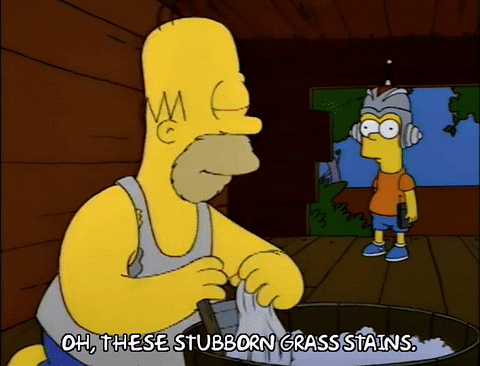How to save water while washing clothes?
Water is a precious resource, and it's easy to waste it. For example, when you wash your clothes, the amount of water used can vary considerably depending on the size of your load and the detergent you use. For example, using a full load of laundry can use up to 30 gallons of water per load.
The primary concept of washing clothes depends on the kind of detergent you use. Is it powder, liquid, pods, or tablets? Are you even using the suitable detergent to save water? What is the best liquid detergent for your fabrics? Let's find out.
What is the difference between liquid soap and detergent?
Liquid soap and detergent are both products that clean your clothes. But there are differences between them. Liquid soap is made from natural ingredients, such as glycerin and coconut oil, which makes it more gentle on your skin than a powder detergent. Liquid detergents are also less expensive than powders, making them a better choice for people with limited budgets., just like TheBetterHome's plant-based laundry liquid.
It's corrosive-free, non-toxic and contains active enzymes that break the chemical bond of stains and spotlessly clean any fabric without ruining the shine. Powdered detergents are easier to handle than liquids because you can roll up the container for easy storage and transportation. However, the cost of powdered detergents may be higher than liquid ones due to higher production costs per unit of product.

If you're using liquid soap, use about 1/4 cup per load. If you prefer powder, mix equal parts of liquid detergent and water. Liquid means it dissolves in water, absorbed into the fabric as you wash. Powders dissolve in water but don't absorb as much as liquid detergents do because they don't have the same molecular structure.
Powders are usually less expensive than the equivalent amount of liquid, but they'll leave a slightly different finish on your clothes than liquid formulas. The best thing to do is test out both types to see which works best for you — then choose one or the other based on what you like best.
Is liquid detergent better than powder?
Liquid detergent is best when washing clothes in a washing machine. Powder detergents are made up of tiny microscopic particles, which allow them to dissolve in warm water. Liquid detergents are not as efficient as a powder but are cheaper and easier to use. If you want to save water while washing clothes, then the liquid detergent is the best choice. In addition, it can be diluted with cold water, so fewer suds are produced when you wash your clothes.

This means less water is wasted when you wash your clothes, and your clothes don't get sopping wet before they're put away in their tidy drawers or cupboards. In addition, when you use liquid detergent instead of powdered products, you need only add one part of liquid soap to four parts of cold water (or cold tap water). However, if you add too much liquid soap, your clothes won't be spotless because there is too much suds on them and not enough dirt removed before they're rinsed off with hot water.
What is the use of liquid detergent?
Liquid detergents are simple to use, have less foaming, and dilute easily with water. In addition, some liquid laundry soaps come with power boosters such as oxygen boosters or enzymes that help get rid of tough stains and odours better than just plain old soap alone.
Tips to save water while washing clothes:

Use less hot water:
Water takes longer to warm up than air does. So, if you are using hot water to wash your clothes, use less hot water. The less you wash with hot or warm water, the less energy and water will be used in your dryer. The hotter the water is, the more energy it takes to heat and cool it. Heating cold water takes less energy than heating warm water, so you will save money if you can reduce this step in your machine.
Pre-treat stains:
Stains on clothing can make them harder to remove, so it’s essential to pre-treat stains before washing so that they come out easily without causing damage to your clothes or the fabric itself. For example, if there are grease spots on your clothes, try applying a small amount of baking soda directly onto the spot before washing them in hot water for one minute.
Choose the correct water level.
Some washers have multiple levels for different loads. If you want to use less water but still have enough sudsing power for your clothing, try setting your washer at its highest temperature so that only half of your clothes are washed at a time when they would usually be washed at one setting. This way, each load will only take half as long as it would if they were all washed in one setting.
Run full loads:
Washing a full-load laundry is one of the most efficient choices to save water. Combine smaller washes into one and run your washing machine at least 2-3 times a week. Washing fewer clothes daily will be time-consuming and also stimulate water wastage.
Wear your clothes more than once:
Washing every piece of clothing after one use will ruin the fabric and cause a lot of water wastage. So try to wash clothes at least after wearing them 3-4 times. Remember, this practice doesn't include inner garments because you have to clean them after every use.









